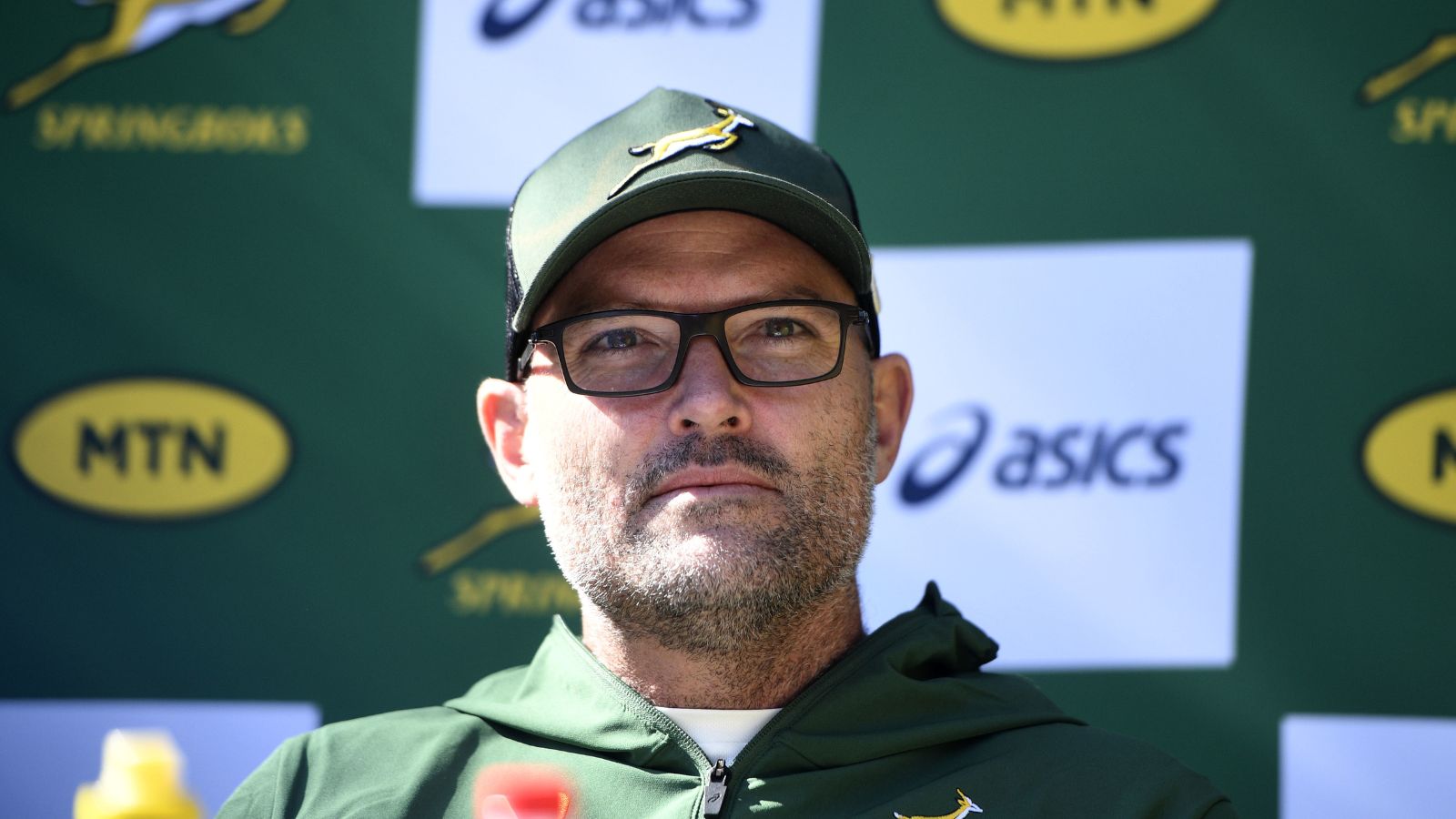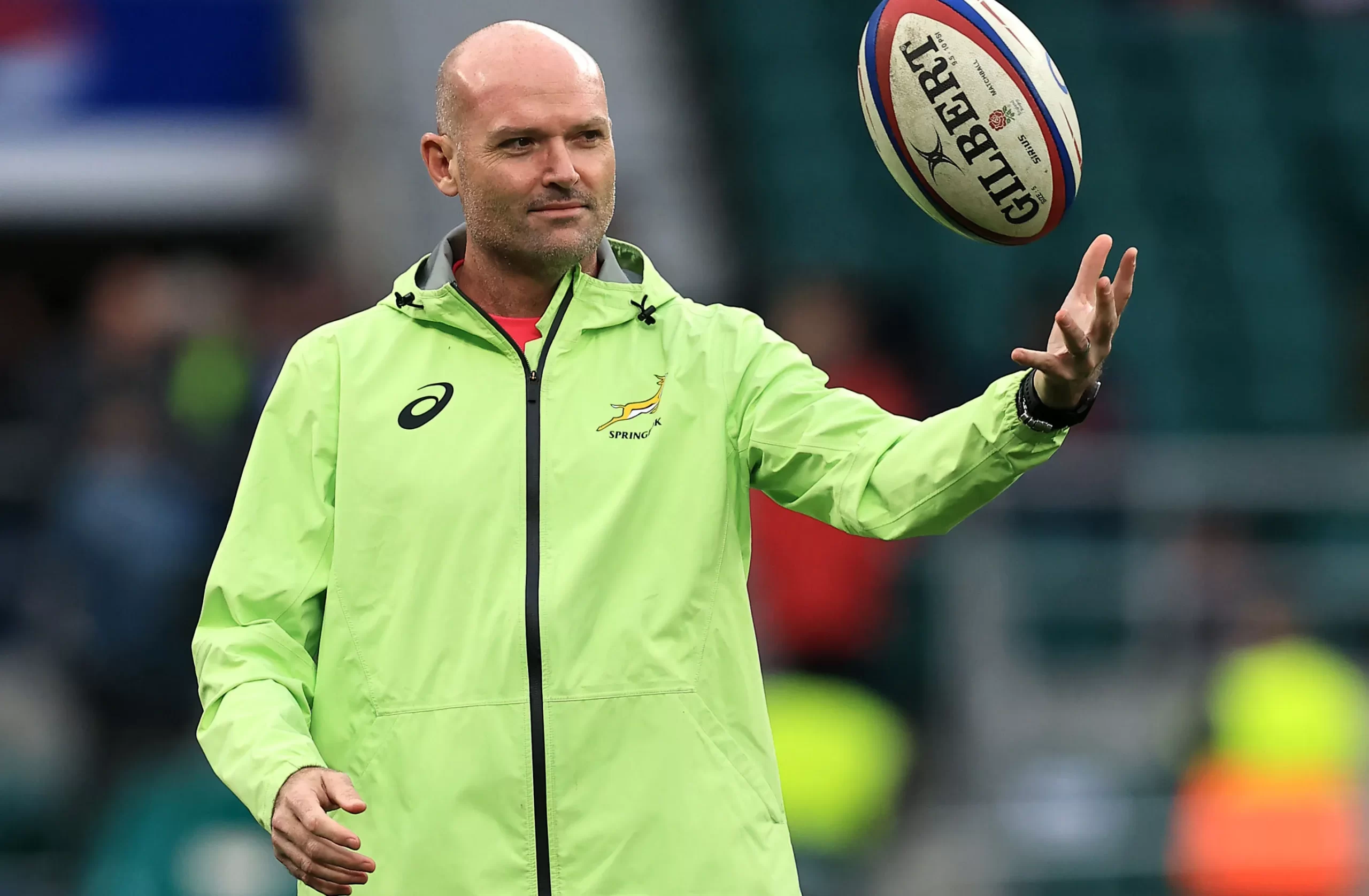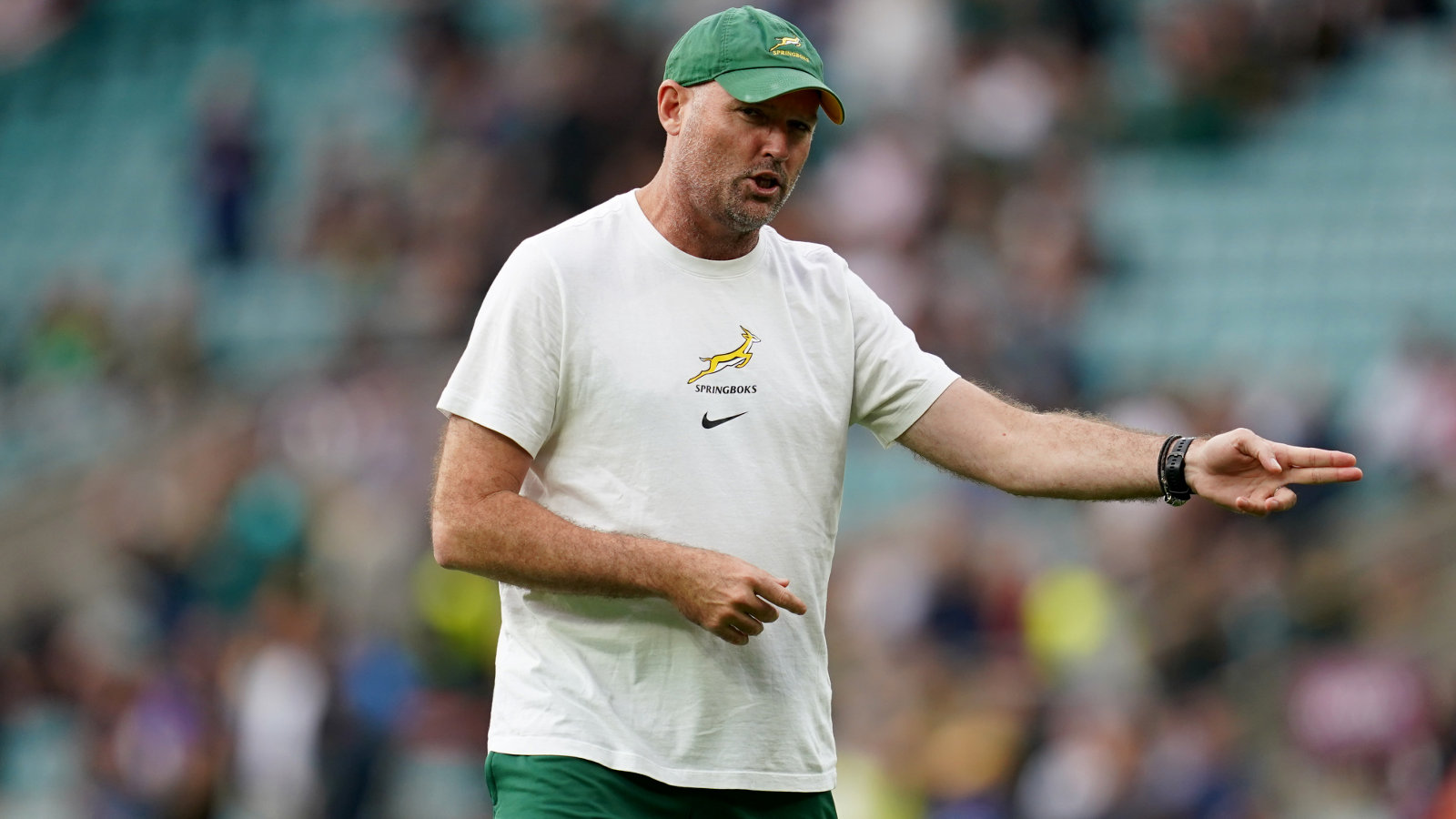South Africa’s head coach, Jacques Nienaber, explained why he is using a 7-1 strategy in a recent press conference, while some people think it might be risky.
Nienaber used the 7-1 split again in South Africa’s important game against Ireland, which means they have more forwards than normal compared to the average team that normally has more backs.
The Springboks coach who will soon be with Leinster says that using this different tactic is never against the rules, even though some people are complaining about it.

Former Scotland manager and pundit Matt Williams branded the move bordering on immoral and suggested it could put players at risk.
“Is it allowed by the rules? Yes. Is it a clever strategy for the World Cup? I believe so. Is it a good tactic? Yes. But is it morally right?” asked Williams during a Virgin Media podcast. “What I mean is, if lower-level rugby teams copy the Springboks, and they probably will, there are players in those teams who play as prop or second-row positions.
If these players get tired, and the other team brings on seven fresh players to join the forwards, and they push in a scrum later in the game, hoping to get a penalty and win, it could put those players’ backs at risk.
Also Read: Ronan O’gara Discusses How Ireland Can Defeat the Springboks’ Strong Tactics
“I cannot keep quiet just because I saw it. All of us who have seen it firsthand have a responsibility to remind the next generation not to go back there.” Niember rejected all suggestions that this decision was anything other than an innovation within the rules of the game.
“I think when there’s a new idea in any sport, it can cause different opinions, both good and bad. This is something very different because it is the first time a team has chosen to have seven forwards and only one back on the bench, and that is why I call it innovative. People will have different reactions to it.
As for the safety of the players, I do not see the issue. Nothing prevents other teams from doing the same, and it would be disappointing if they changed this innovative approach to the game.”
Our Bench is Not Necessarily What You Would Call a Bench
“It is not against the rules of the game, and we do not think it affects player safety.” Nienaber was also asked which would be his first choice: bench or starting.

“That’s a difficult question,” Nienaber said. “Our bench is not necessarily what you would call a bench because I don’t know any other teams on the team. Sometimes, people think if you are on the bench, maybe you’re not as good as the players who are starting. But as I have said many times, that’s not necessarily the case with the team we have here and the team we have.
“We’re not saying he will start on the bench. We’ll choose No. 23. It may be a cliché, but that is how we actually do it. They are chosen for a specific reason.
“This is an important game, and we all knew we were going to be in this group, and we all knew it would be difficult to get out of this group. The first game was against Scotland, then Romania, then Ireland, and then Tonga, so there was a lot of pressure.
“Whether we win or they win, it helps us in the tournament. The pressure was always there from the beginning of the World Cup. We knew we had to treat every game like a knockout match right from the beginning, so nothing really changes for us now.”
